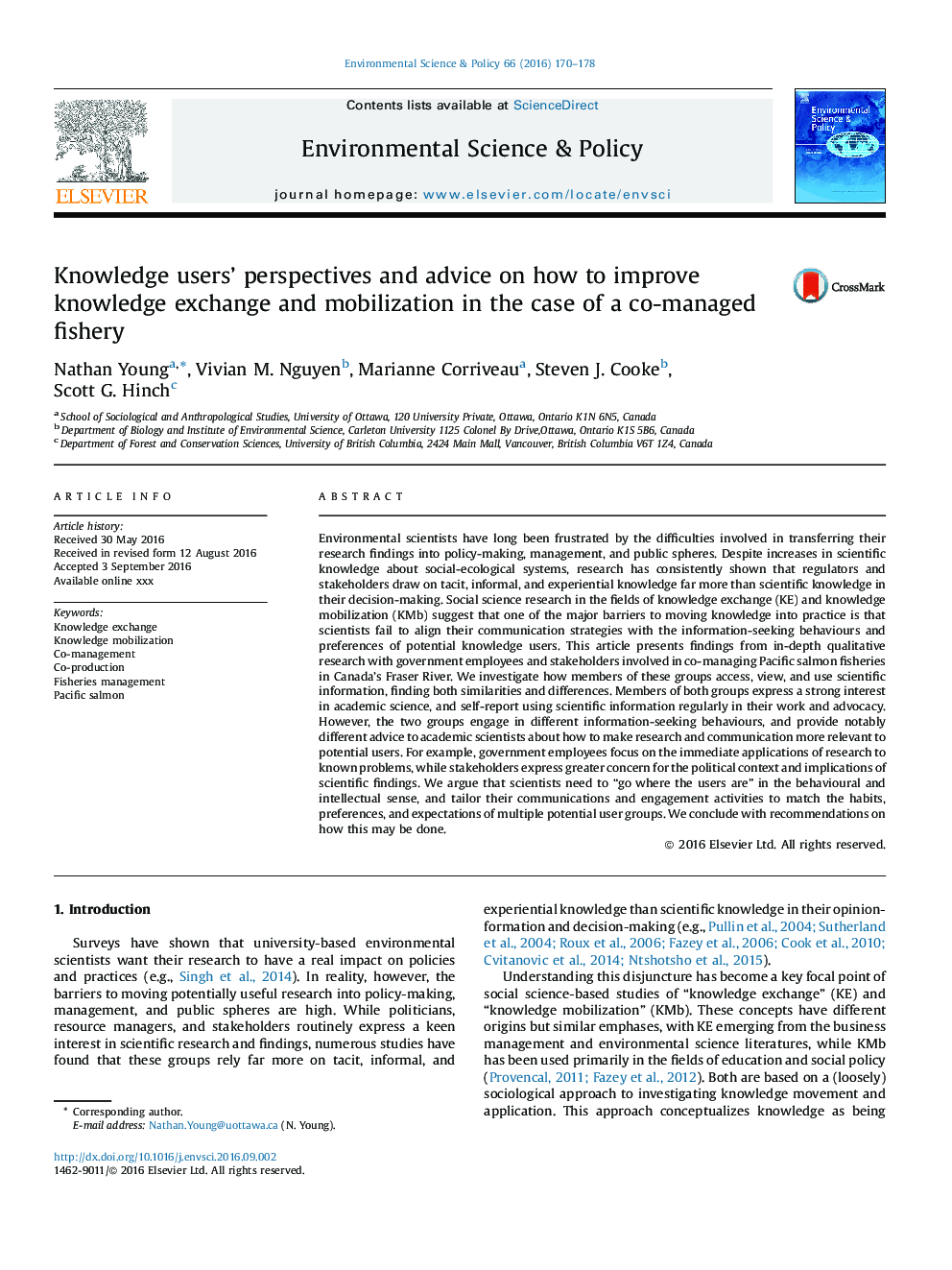| کد مقاله | کد نشریه | سال انتشار | مقاله انگلیسی | نسخه تمام متن |
|---|---|---|---|---|
| 7466552 | 1485042 | 2016 | 9 صفحه PDF | دانلود رایگان |
عنوان انگلیسی مقاله ISI
Knowledge users' perspectives and advice on how to improve knowledge exchange and mobilization in the case of a co-managed fishery
ترجمه فارسی عنوان
دیدگاه ها و توصیه های کاربران دانش در مورد چگونگی بهبود تبادل دانش و بسیج در مورد ماهیگیری مشترک
دانلود مقاله + سفارش ترجمه
دانلود مقاله ISI انگلیسی
رایگان برای ایرانیان
کلمات کلیدی
موضوعات مرتبط
مهندسی و علوم پایه
مهندسی انرژی
انرژی های تجدید پذیر، توسعه پایدار و محیط زیست
چکیده انگلیسی
Environmental scientists have long been frustrated by the difficulties involved in transferring their research findings into policy-making, management, and public spheres. Despite increases in scientific knowledge about social-ecological systems, research has consistently shown that regulators and stakeholders draw on tacit, informal, and experiential knowledge far more than scientific knowledge in their decision-making. Social science research in the fields of knowledge exchange (KE) and knowledge mobilization (KMb) suggest that one of the major barriers to moving knowledge into practice is that scientists fail to align their communication strategies with the information-seeking behaviours and preferences of potential knowledge users. This article presents findings from in-depth qualitative research with government employees and stakeholders involved in co-managing Pacific salmon fisheries in Canada's Fraser River. We investigate how members of these groups access, view, and use scientific information, finding both similarities and differences. Members of both groups express a strong interest in academic science, and self-report using scientific information regularly in their work and advocacy. However, the two groups engage in different information-seeking behaviours, and provide notably different advice to academic scientists about how to make research and communication more relevant to potential users. For example, government employees focus on the immediate applications of research to known problems, while stakeholders express greater concern for the political context and implications of scientific findings. We argue that scientists need to “go where the users are” in the behavioural and intellectual sense, and tailor their communications and engagement activities to match the habits, preferences, and expectations of multiple potential user groups. We conclude with recommendations on how this may be done.
ناشر
Database: Elsevier - ScienceDirect (ساینس دایرکت)
Journal: Environmental Science & Policy - Volume 66, December 2016, Pages 170-178
Journal: Environmental Science & Policy - Volume 66, December 2016, Pages 170-178
نویسندگان
Nathan Young, Vivian M. Nguyen, Marianne Corriveau, Steven J. Cooke, Scott G. Hinch,
